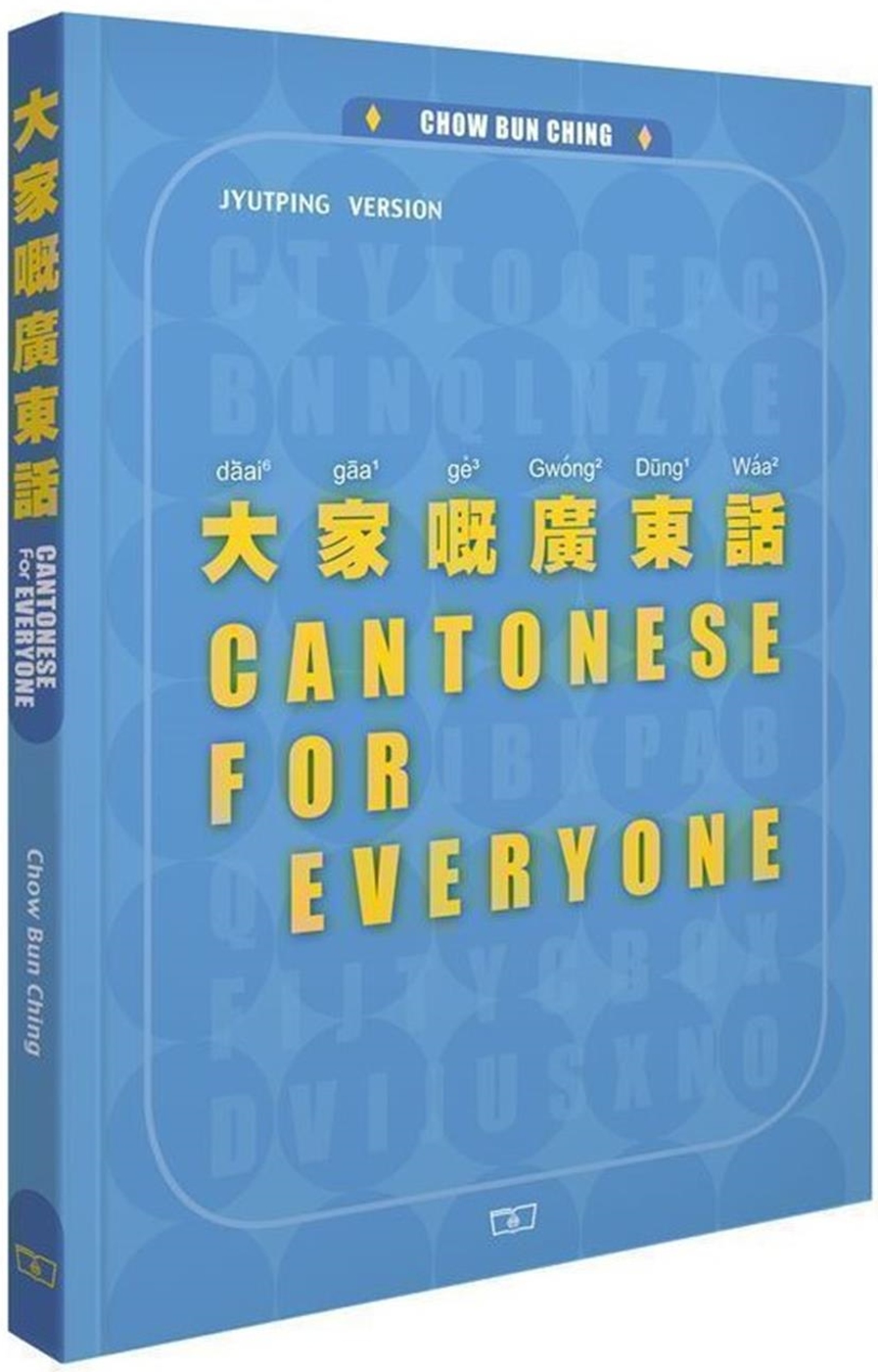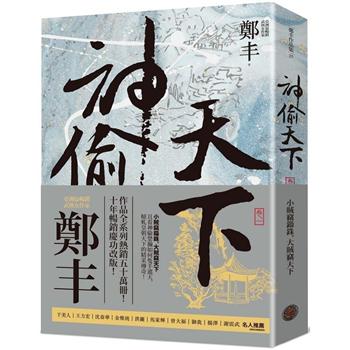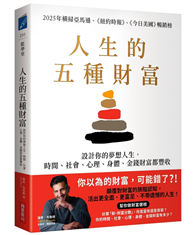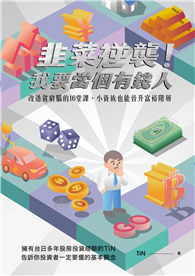以粵拼語音系統編寫,按主題編排,包括自我介紹、認識新朋友及日常生活的基本對話,例如:點菜、買東西、議價、問路等。
【核心賣點】
a)以粵拼語音系統編寫,讀者對象是外國學生、交換生和留港工作或定居的外國人。
b)主題貼近生活,包括自我介紹、認識新朋友、點菜、買東西、議價、問路等。語境在香港,讀者可活學活用,同時認識香港文化,有助適應在港生活,融入社區。
d)全書十五個單元均有練習,可供即時實踐所學。而每個練習也增設計分制,方便讀者了解學習進度。
e)附廣東話英語對照詞表,供快速查閱。
作者簡介:
Chow Bun Ching has dedicated more than twenty-five years to teaching written Chinese and spoken Cantonese to expatriates of varied backgrounds in the University of Hong Kong. As a lecturer at HKU, Ms Chow teaches language courses at all levels. She has also been in charge of the Cantonese Section at the Chinese Language Centre of the School of Chinese. Ms Chow was awarded a Faculty Teaching Excellence Award from the Faculty ofArts in 2009. Her research interests are in the area of the teaching and learning of Chinese/Cantonese as a foreign language. Ms Chow has published several textbooks that are widely used over the world. She is the co-author of Living Cantonese for Intermediate Learners (1997, Jyutping version 2017), the author of Learn Chinese Using Cantonese (2008, Jyutping version 2016), Spoken Cantonese for Non-Chinese Speaking Students (2009) and Decoding Chinese Characters (2016).
作者序
This short course is meant for people who have no prior knowledge of Cantonese but have a strong
desire to learn and a need for its use as soon as possible. This book is principally designed for
newcomers to Hong Kong (especially international students) who wish to overcome the language
barrier in their new living environment.
The aim of the course is to introduce the fundamental structure of the Cantonese language, as well
as common and useful Cantonese vocabulary, phrases and expressions that can immediately be put
to use in daily life.
The emphasis will be on the practical side of the language use, so as to meet everyday needs while
residing in Hong Kong. In a relatively short period of time, learners will grasp the most useful and
practical phrases or expressions to make life here easier and more enjoyable. In addition, there are
sections on the culture and life in Hong Kong that will hopefully help you in the transition stage.
Many people say that Cantonese is a difficult language to learn, but I believe that given the right
learning material and environment, it is no more difficult than any other second language. I hope
that this course will help in this regard.
Chow Bun Ching
BA, MA, Cert TJFL
Honorary Lecturer
University of Hong Kong
This short course is meant for people who have no prior knowledge of Cantonese but have a strong
desire to learn and a need for its use as soon as possible. This book is principally designed for
newcomers to Hong Kong (especially international students) who wish to overcome the language
barrier in their new living environment.
The aim of the course is to introduce the fundamental structure of the Cantonese language, as well
as common and useful Cantonese vocabulary, phrases and expressions that ...
目錄
Acknowledgements .................................................................................................................................. i
Preface ........................................................................................................................................................ ii
How to Use this Book ....................................................................................................................... iii - iv
Contents ................................................................................................................................................ v - vi
Quick Reference Matrix ..................................................................................................................vii - x
Unit 1: Introduction ............................................................................................................................... 1
1. Cantonese, the Language .................................................................................................2 - 5
2. Cantonese Sound System ...............................................................................................6 - 20
3. Immediately Useful Expressions ............................................................................... 21 - 25
Unit 2: Numerals ................................................................................................................................... 27
1. Cardinal Numbers (0 – 1,000,000) ............................................................................ 28 - 31
2. Ordinal Numbers (first-second-third) .............................................................................. 32
3. Traditional Signs for Numbers .......................................................................................... 33
4. Money ............................................................................................................................ 34 - 36
5. Date (year-month-day) ................................................................................................ 37 - 40
6. Clock Time (hour-minute) .......................................................................................... 41 - 44
7. Counting Things with Measure Words ..................................................................... 45 - 47
Unit 3: Arrival ....................................................................................................................................... 49
Main Characters in the Conversation .............................................................................. 50 - 51
Lesson 1. Greeting at the airport .................................................................................. 52 - 59
Lesson 2. You are here .................................................................................. 60 - 69
Lesson 3. Accommodation & check-in ........................................................... 70 - 77
Lesson 4. Money exchange ............................................................................ 78 - 86
Unit 4: Personal Information ...........................................................................................87
Lesson 5. Self-introduction ............................................................................ 88 - 97
Lesson 6. Getting to know a new friend ........................................................ 98 - 109
Lesson 7. My Chinese friend ...................................................................... 110 - 119
Lesson 8. Chatting with a friend ................................................................ 120 - 130 Unit 5: Essential Basic Conversation .............................................................................. 131
Lesson 9. Looking for a place .................................................................... 132 - 141
Lesson 10. What is this? ............................................................................. 142 - 149
Lesson 11. Ordering food ............................................................................ 150 - 158
Lesson 12. Having a dim-sum lunch ............................................................ 159 - 171
Lesson 13. Buying & bargaining .................................................................. 172 - 181
Lesson 14. Taking public transportation ....................................................... 182 - 195
Lesson 15. Finding your way ....................................................................... 196 - 205
Cantonese – English Glossary ................................................................................ 207 - 231
English – Cantonese Glossary ................................................................................ 232 - 255
Glossary & Abbreviations of Grammatical Terms .................................................. 256 - 257
References ...................................................................................................................... 258
Acknowledgements .................................................................................................................................. i
Preface ........................................................................................................................................................ ii
How to Use this Book ....................................................................................................................... iii - iv
Contents ..............................












